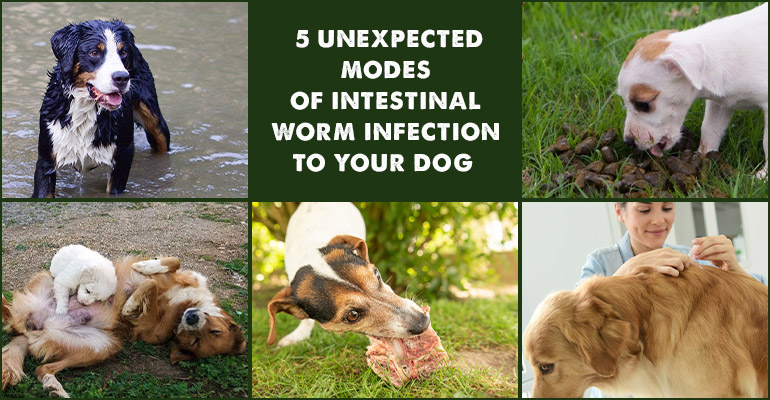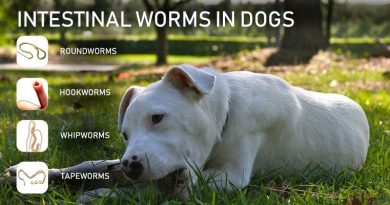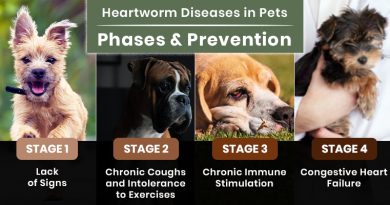5 Unexpected Modes of Intestinal Worm Infection to Your Dog
There is a high risk of your dog being infected with worms present in its environment. The most common intestinal worms are tapeworms, roundworms, hookworms and whipworms that live and grow in your dog’s intestines. And the presence of worms causes intestinal blockage and more serious conditions.
There are many ways your dog becomes a host to worms. Here are the 5 most surprising ways your dog can become infected with worms. Let us know in detail how dogs catch on worms.
1. Contaminated Soil and Water
Risk of: Roundworms, Hookworms, Whipworms
Intestinal worms pass on their eggs in their host’s stool, and these parasitic eggs can contaminate the soil. Some worms can live in the soil for years. Dogs attract worms or worm larvae when they rub and roll in the contaminated soil or water puddle.
When your dog licks or eats things from the ground or chews on sticks, it gets infected with parasites that may be present in the soil. The most common worms that dogs get infected with are roundworms, hookworms, or whipworms through this.
Buy Milbemax Best treatment for Roundworms, Hookworms and Whipworms in Dogs
2. From Their Mother
Risk of: Roundworms, and Hookworms
Some intestinal worms are passed to the pup’s intestine through the placenta while they are still in the womb. Another way a pup gets worm infection is when ingesting worm larvae from their mother’s milk. Roundworms and hookworms are easily passed to a puppy in this manner.
3. Hunting behaviour
Risk of: Tapeworms, Hookworms, Whipworms
Another way your dog can become infected with intestinal worms is by hunting and eating dead animals already infected with worms. A dog can become infected with hookworms, whipworms, and tapeworms this way.
Buy Best in intestinal worm Protection Drontal Wormers
4. Fleas
Risk of: Tapeworms
Fleas may transmit tapeworm infection to dogs. If your dog accidentally ingests an infected flea while grooming, it can become infected by tapeworm larvae. Keeping a check on the fleas can help avoid flea infestation. Regular flea treatment will eliminate fleas and flea eggs from your dog’s coat.
There are a variety of flea preventive treatments that can be administered orally or topically. Visit Budgetvetcare.com to check on the range of flea treatment and preventive products.
Buy Droncit Tapewormer Effective tapeworms treatment for dogs
5. Coprophagia
Risk of: Roundworms, Tapeworms
Coprophagia means the act of eating stool. Dogs can contract intestinal worms while eating infected feces. It is recommended that the waste from animals be promptly disposed to help prevent re-infection.
The following safety tips may help prevent your dog from catching up on worms:
- Regular deworming treatment as recommended by your vet
- Control fleas with flea treatments
- Clean up fecal materials daily
- Toilet train your dog to go to a designated area
- Stop your dog from ingesting its own or other animal droppings
- Do not let your dog eat food from the ground
Know In Detail About : Intestinal Worms In Dogs: Things You Need To Know
Foot Note
As we all know, worms are found in your dog’s environment. It is crucial to make sure to deworm your dog regularly. Routine stool checks must be done to ensure your dog is free from any worm infestation. Keeping a watch on all your dog’s activities will help avoid any further intestinal worm infestation.




